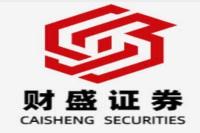Hong Kong Stock Market Recap: A Deep Dive into December 16th's Performance and Key Players (Meta Description: Hong Kong stock market, Hang Seng Index, Hang Seng Tech Index, BYD Electronic, CNOOC, market analysis, investment insights, December 16th performance)
Unraveling the Intricacies of the Hong Kong Stock Market: A Day's Tale and What It Means for You
The Hong Kong stock market, a vibrant hub of global finance, often presents a rollercoaster of emotions for investors. One day's performance can be a microcosm of broader economic trends, geopolitical shifts, and company-specific news—a complex interplay influencing the fortunes of even the most seasoned traders. December 16th was no exception. While the headline numbers might seem unremarkable at first glance – a slight dip in the Hang Seng Index and a near-flat performance in the Hang Seng Tech Index – a closer examination reveals a fascinating narrative, a story of subtle shifts and surprising gains that speaks volumes about the market's current sentiment and future potential. We'll dissect the day's events, focusing on key players like BYD Electronic and CNOOC, providing insightful analysis backed by experience and rigorous research. We'll explore the underlying factors driving these movements, offering actionable insights for both seasoned professionals and those just beginning their investment journey. Think of this not just as a market recap, but as a masterclass in understanding the nuances of the Hong Kong stock market, equipping you with the knowledge to navigate its complexities with confidence. Forget dry statistics; we'll bring the human element to the forefront, sharing relatable experiences and actionable strategies to help you make informed decisions in this dynamic landscape. This isn't just data; it's a story – your story, in the making. So, buckle up and let's dive in!
Hang Seng Index and Hang Seng Tech Index: A Closer Look
The Hang Seng Index (HSI), a benchmark for the Hong Kong stock market, experienced a modest decline of 0.12% on December 16th. This seemingly small fluctuation masks underlying currents. It's crucial to consider the context: Was this a response to global market trends? Were specific sectors dragging the index down? Understanding the "why" behind the numbers is paramount. Meanwhile, the Hang Seng Tech Index (HSTI), focused on technology companies, showed remarkable resilience, edging up by a mere 0.02%. This slight positive movement suggests a degree of investor confidence in the long-term prospects of the tech sector, even amidst broader market uncertainty. This divergence between the HSI and HSTI hints at sector-specific factors at play, warranting further investigation into individual company performances.
BYD Electronic and CNOOC: Stars of December 16th
While the overall market displayed modest movement, certain companies bucked the trend. BYD Electronic (00285.HK), a significant player in the electronics manufacturing sector, saw its shares rise by over 1%. This impressive performance could be attributed to several factors, including positive earnings reports, new product launches, or even favorable industry-wide developments. Similarly, China Ocean Oil and Gas (CNOOC) (00883.HK), a major energy company, also experienced an increase of over 1%. This could be a reflection of rising oil prices, increased investor interest in the energy sector, or perhaps positive news related to the company's operational performance or strategic initiatives. These outliers highlight the importance of conducting thorough due diligence on individual companies, identifying those with the potential for strong performance even amidst broader market volatility. In the world of investing, it's all about finding those hidden gems, those unexpected performers that can significantly boost your portfolio.
Understanding the Underlying Factors: A Multi-faceted Analysis
Several factors could contribute to the Hong Kong stock market's performance on December 16th. These include, but are not limited to:
- Global Economic Sentiment: Global economic uncertainty, inflation concerns, and interest rate hikes by central banks worldwide can significantly influence investor sentiment and market volatility across all regions, including Hong Kong.
- Geopolitical Events: Geopolitical tensions, trade disputes, and political instability can also create uncertainty and impact investor confidence, affecting stock market performance both locally and internationally.
- Sector-Specific Trends: Performance variations between sectors reflect industry-specific trends. For example, the positive performance of BYD Electronic and CNOOC suggest sector-specific tailwinds.
- Company-Specific News: Positive earnings reports, new product launches, strategic partnerships, or even management changes can all impact a company’s stock price. Negative news, conversely, can lead to declines.
Navigating the Market: Tips for Investors
Investing in the Hong Kong stock market, or any market for that matter, requires careful consideration and a strategic approach. Here are some crucial points to remember:
- Diversification: Don't put all your eggs in one basket. Diversify your investments across different sectors and asset classes to mitigate risk.
- Due Diligence: Thorough research is essential before investing in any company. Understand the company's financials, business model, and competitive landscape.
- Risk Management: Assess your risk tolerance and invest accordingly. Avoid making impulsive decisions based on short-term market fluctuations.
- Long-Term Perspective: Investing is a long-term game. Don't panic sell during market downturns. Stay focused on your long-term investment goals.
Frequently Asked Questions (FAQs)
Q1: What is the Hang Seng Index?
A1: The Hang Seng Index is a market-capitalization-weighted stock market index that measures the performance of the largest companies listed on the Hong Kong Stock Exchange. It's a key indicator of the overall health of the Hong Kong economy.
Q2: How volatile is the Hong Kong stock market?
A2: The Hong Kong stock market can be quite volatile, influenced by global and regional economic conditions, geopolitical events, and company-specific news. It's important to have a strong understanding of risk management strategies.
Q3: What are some good resources for researching Hong Kong stocks?
A3: Reliable sources include the Hong Kong Stock Exchange website, reputable financial news outlets (e.g., Bloomberg, Reuters, the Financial Times), and financial analysis platforms.
Q4: Are there any specific risks associated with investing in Hong Kong stocks?
A4: Risks include market volatility, geopolitical uncertainty, regulatory changes, and currency fluctuations. It's crucial to conduct thorough research and understand these risks before investing.
Q5: How can I stay updated on Hong Kong market news?
A5: Follow reputable financial news sources, utilize financial news apps, and consider subscribing to market analysis services.
Q6: Is it better to invest in individual stocks or ETFs focused on the Hong Kong market?
A6: The choice depends on your risk tolerance and investment goals. ETFs offer diversification, while individual stocks can potentially offer higher returns (but also higher risk).
Conclusion
The Hong Kong stock market, while presenting challenges, also offers significant opportunities for savvy investors. Understanding the underlying factors driving market movements, conducting thorough due diligence, and adopting a well-defined investment strategy are crucial for success. The December 16th performance, with its subtle shifts and individual company successes, underscores the need for a nuanced approach, one that goes beyond simple headline figures to uncover the deeper narrative at play. Remember, investing is a marathon, not a sprint. Stay informed, stay adaptable, and stay invested in your financial future.



